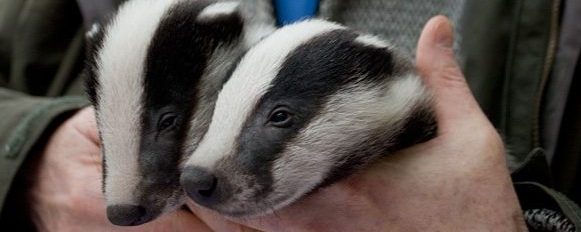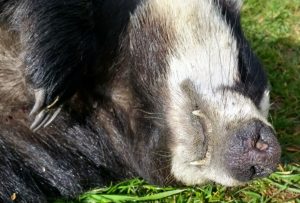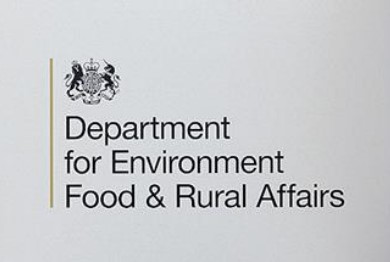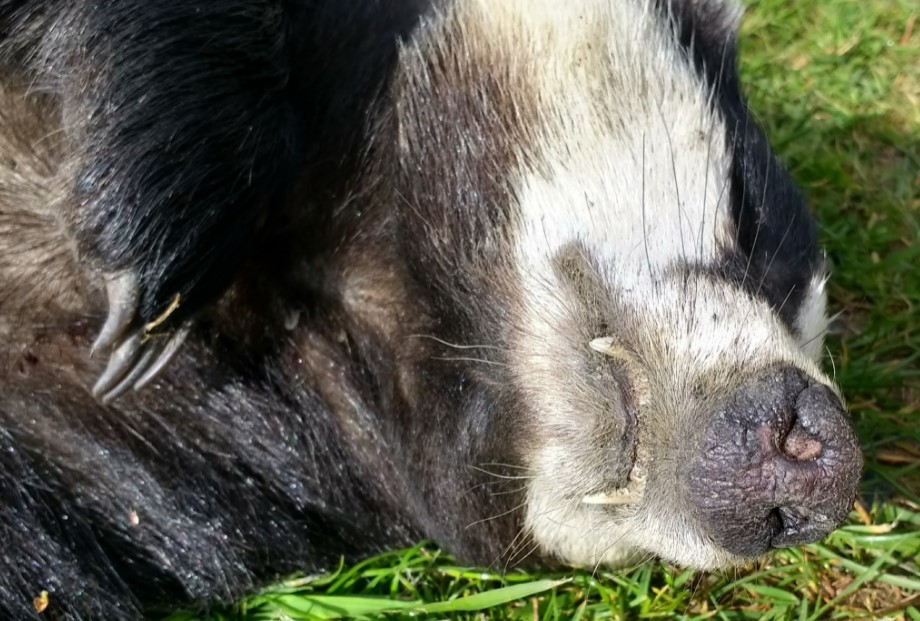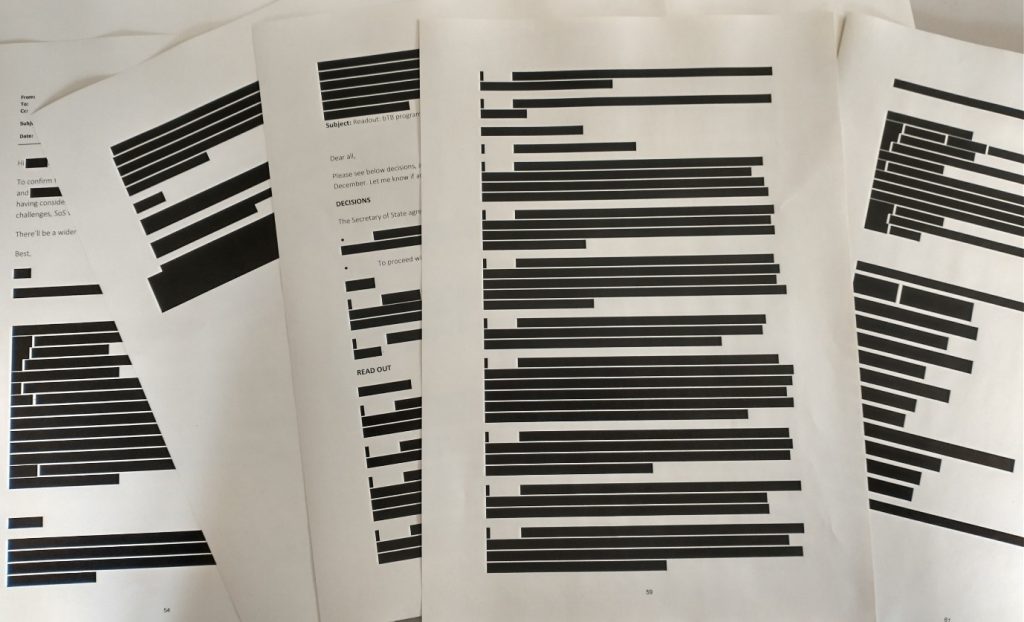On Tuesday 26th July 2022 at the Court of Appeal in London, case CA-2021-001918 was heard: The Queen on the Application of Langton v The Secretary of State for Environment, Food and Rural Affairs & Anr was heard in Court 71. The presiding judges were Lady Justice Macur, Lord Justice Haddon-Cave and Lord Justice Dingemans.
It was not a good day for badgers, or for public interest concerned with how government policy impacts the UKs increasingly nature-depleted rural areas. It showed a sinister ploy by the Government to defeat a well constructed legal claim in what is plainly backroom conduct that only came to light in April 2022, after the Court of Appeal had granted permission for the appeal to be heard. Most of all it shows the level of thinking in government where winning and ‘doing it our way’, takes precedence over doing what is right and in the public interest.
The decisions, read with the House of Commons Environmental Audit Committee recommendations published just two days later, could not provide a more stark contradiction. Government has created a new low bar, where not knowing enough, not being able to afford essential research and ignoring official reports pointing to evidence gaps, are all good reasons to do nothing. Biodiversity protection just entered a dangerous void, thanks to those in charge at Defra and Natural England.
Background
This case was an appeal from the High Court judgement of August 2021 [2021] EWHC 2199 (Admin), where Mr Justice Griffiths concluded that the Secretary of State for the Environment, George Eustice, was not required to ‘have regard’ to the potential impacts of badger culling policy on biodiversity under Section 40 of the NERC Act 2006, see here. This was in respect of listed priority species and habitats and the potential disruption of biodiversity by removal of badgers from the wider countryside.
The first stage of the Court of Appeal hearing was to consider whether the appeal had become “academic”, after permission to appeal had been granted by Justice Simler on 13th April, following late evidence from Defra in the form of the witness statement of Eleanor Brown dated 28 April 2022 and submitted by the Secretary of State.
Ms Brown’s witness statement showed that Defra took steps to remedy the same defect alleged in the High Court case regarding the all-important section 40 duty to consider biodiversity impacts. The Secretary of State had conceded before Justice Griffiths the assessment under section 40 had not been done when adopting Next Steps in 2020. It was a rearguard action that had significant implications for the case when it was finally before the Court of Appeal this July.
Ms. Brown is DEFRA’s Veterinary Head for TB Policy Advice. She told the Court in her witness statement that following the judgment in the High Court in July 2021, that although Defra had “won” the case, in October 2021, Defra officials nevertheless took steps in case that decision was overturned, and to prepare papers for the Secretary of State, to be signed off in December 2021. This would include the missing s40 assessment of the effects of badger culling on biodiversity. Ms Brown explains that the Defra officials invited the Secretary of State to consider whether to continue with Next Steps badger control policy. A copy of the briefing note to the minister can be found here. Our view of the Minister’s briefing was that it was a wholly inadequate summary of previous information about the risk of badger culling and manifestly failed to fully assess the wider ecological risks.
Ms Brown’s evidence was challenged as being a breach of the duty of candor, given that Ms Brown, and the Government Legal Department who acts for the Secretary of State in legal proceedings, kept these October 2021- December 2021 activities secret both from parties to the case and from the Court, and only declared them once permission to Appeal had been granted in mid-April 2022.
The case for the claimant is made
The question of the Appeal being ‘academic’ (without legal means for ‘relief’: to quash the unlawful original policy, as challenged) was considered as the first stage in the court process. Mr Richard Turney (Landmark Chambers) for the claimant, argued that although relief in respect of the quashing of the badger cull 2020 ‘Next Steps’ policy was no longer available, due to the Secretary of State having latterly remedied any potential omission ‘to have regard’ in December 2021, (Ground 4), an important point of principle remained. This was in respect to the legal requirement to ‘have regard’ under the NERC Act 2006 when making decisions of this sort (Grounds 1 and 2). The claimant was nevertheless entitled to a hearing and if successful, ‘declaratory relief’, this being recognition of the legal error in respect of the generic approach to the issue and the judgement by Mr. Justice Griffiths in August 2021.
Mr. Turney emphasised the importance of the case, that badger culling is highly controversial and possibly the largest intervention ever for protected wild species in the UK. The same duty to ‘conserve biodiversity’ (a central component of obligations under the Convention on Biological Diversity 1992) is now to be taken forward in the 2021 Environment Act. Some parts have yet to come into force, but it is potentially weakened by the original 2021 Griffiths judgement by giving space for provisions to be avoided where uncertainty exisits. Mr. Justice Griffiths judgement was said to be, in Mr. Turney’s view, ‘stark’: if the biodiversity duty does not apply in these circumstances, would it apply in any circumstances?
The government responds
Mr. Hanif Mussa QC (Blackstone Chambers) for the government took the court to the government’s ‘no difference’ argument, that it would have done what it did (not take steps to consider, investigate, avoid, monitor, and take action to mitigate potential ecological impacts of badger culling) irrespective of its consideration of the biodiversity duty. He submitted that the claim had to be dismissed because the court no longer had authority to continue. He submitted that the 2021 Environment Act was sufficiently different for the decision not to be that relevant and that there were currently no outstanding cases where the outcome might rest on this case.
He referred to Dr Brown’s witness statement that research into potential impacts would take too long and there was no point studying them over the four years remaining of culling.
Court of Appeal decides not to hear the case.
Within two hours of consideration, the judges came to their conclusion that by reconsidering the matter in December 2021, Defra had corrected any possible error in the Secretary of State’s earlier procedure and therefore any consideration of relief in 2022 was therefore academic.
With respect to the matter being considered on Appeal as exceptional circumstances, the judges did not seem too interested in the issue over whether the subject of the case was part of an ‘ongoing relationship’ between Mr. Langton and Natural England (remedies in the 2017 and 2018 cases proved the long running dispute) although they were ‘aware’ of Natural England’s communications with the claimant.
Whether the wording of the 2021 Environment Act is sufficiently different to that of the 2006 NERC Act in respect of the Section 40 duty and for there to be a significant concern over the decision affecting future decisions withthe new legislation did not appear to be appreciated as a compelling argument of much interest to the court. This is where it might be argued most forcefully that the Court of Appeal let things down.
Finally, whether there were other cases waiting to be heard on the point, and to which this Appeal related seemed to be important, and because none were known this appeared to act against the argument for a full hearing so the three judges decided to close the hearing down.
Conclusions
It is disappointing that the Court of Appeal decided not permit the substantive merits of the case to be aired and allowed an important public interest case to be “played” by Defra through the submission of very late evidence that had the effect of rendering the claim ‘academic’, so that the merits were not decided.
For now, there remains doubt over the validity of the main ground in the case as to whether the s40 duty was engaged when Ministers considered Next Steps policy in 2020, and we continue to maintain that the Court of Appeal judges could and should have heard the case given the important legal issue before them.
Defra and Natural England’s conduct since 2013 and during this litigation is worthy of more extended analysis. Those who started off defending doing nothing, and who dug in further when badger culling was rolled out and fought not to take steps and then had to give in a little in 2017 and 2018 doing the minimum possible and in secret. All that behaviour is on the record. There is also a public discussion to be had on the utility of Senior Courts Act when it is used in this way – to remedy clear errors of law after the event, and only in the face of legal challenge, with a claim ‘no difference’ to avoid any consequence.
This repeated approach is against every principle of natural justice. It also suggests that neglect of, or wilful failure to abide by legal duties and responsibilities is now open to Government departments to employ as a default. Employed on the basis that legal challenges exposing such failures will be precipitated in only a minority of instances, and in such situations, you just remedy the error, claim no difference and can be confident the courts will award no sanction or relief. This disgrace holds all the hallmarks a broken system that can and will be used to limit the expectations that might be had for the 2021 Environment Act.
House of Commons Environmental Audit Committee recommendations
Published just two days later, compare what is being promoted with what happened in this case. In the Environment Act 2021, Parliament agreed five environmental principles which are to guide Ministers and their officials in the formulation of policy. These principles are:
|
• the principle that environmental protection should be integrated into the making of policies
• the principle of preventative action to avert environmental damage
• the precautionary principle, so far as relating to the environment
• the principle that environmental damage should as a priority be rectified at source
• the polluter pays principle.
|
Environmental principles of this type are widely used to inform national governments in their approach to environmental policymaking. Reference to them is to be found in several multilateral treaties on the environment, and they are explicitly included in European Union treaties as a foundation of EU environmental law.
After the hearing Claimant Tom Langton commented:
“It is fair to say we have been outmaneuvered by a Ministry intent on culling badgers and ignoring its duty to properly protect the environment from the unmeasured, unmonitored changes that culling may bring about across the wider countryside. The decision not to examine the initial ruling means that our biodiversity crisis has just got deeper, with one of the few statutory requirements to hold back the influence of commercial exploitation on wild species and habitats shown to be both slight and expendable. Many of the basic principles of environmental safeguard have been avoided and this is a bad day both for badgers and biodiversity protection. We will fight on and expose the unscientific and undemocratic actions and attitudes that typify the destruction of our environment and fuel the biodiversity and climate catastrophe.
Environmental impacts expert witness Dominic Woodfield, from Bioscan UK said:
“I believe the refusal to hear the case represents a fundamental failure of jurisdiction, in an instance where any application of logic shows the first instance decision to have been flawed. That failure has been lapped up by Defra and the Government Legal Department, despite their actions since in re-making the decision, demonstrating that they have always known the first instance judgment to be wrong. We went to the court of appeal in the hope of seeing bad law corrected, and if the Court of Appeal are not interested in doing so, one wonders whether the hard work in getting the Environment Act 2021 onto the statute books has been fruitless, even before it has properly come into effect.”
See also here regarding the infamous BTO reports, part of a related ‘broken’ promise by Natural England to monitor badger cull impacts effectively.
Thanks for the huge effort since 2020, to try and bring justice for badgers and their wild communities.
Thanks are extended to the legal team acting for Mr. Langton: Richard Turney and Ben Fullbrook of Landmark Chambers and Lisa Foster and Hannah Norman of Richard Buxton Solicitors, expert witness Dominic Woodfield of Bioscan UK and to all those funding and supporting the legal work as a part of the Badger Crowd. This includes The Badger Trust who helped instigate the legal action against aspects of the ‘Next Steps’ policy in 2020, Badger Trust Sussex for administrative assistance and for managing offline donations, Wild Justice, very many of the badger groups and organisations around the UK, many other animal welfare and conservation bodies and several generous individuals. Hundreds of badger workers and the general public have also chipped in to spread the load. Others have helped with a wide range of supporting actions: research, advice, publicity and coordination. Thank you all.
References
House of Commons 2022. Environmental Audit Committee recommendations on the Government’s draft environmental principles policy statement Third Report of Session 2022–23.
https://committees.parliament.uk/publications/23278/documents/169773/default/
Record of hearing: Court of Appeal video archive. Search for: Langton (claimant/appellant) v The Secretary of State for Environment, Food and Rural Affairs (defendant/respondent)





